In the Russian Federation, there is a trend of negative natural growth of the country's population, and therefore, the predominant number of large families are families with 3 children, constituting 75% of the total number of large families. Therefore, in many constituent entities of the Russian Federation the status large family assigned to families where the number of children is 3 or more, which may also include adopted children under the age of eighteen.
In accordance with the Program of State Support for Large Families in the Russian Federation in 2008-20515, which was approved by the Presidium of the Public Council of the Central Federal District, large family is:
- for subjects of the Russian Federation with negative population growth - a family with 3 or more (including adopted) minor children under eighteen years of age, including children undergoing training in general education institutions, in secondary or higher vocational educational institutions (full-time) until completion of the course of study or until they reach the age of twenty-two;
- for constituent entities of the Russian Federation, where there is a natural positive population growth - a family with 4 or more children, which may include the above categories of persons.
In accordance with clauses 2-4 of the National Standard of the Russian Federation “Social. serving the population of the country according to GOST R 52495-2005, a large family is a family that includes 3 or more children, which has been duly assigned the status of a large family in accordance with the large family threshold approved by the executive authorities of the constituent entities of the Russian Federation.
Features of conditions in different regions
For some regions (for example, Ryazan region) a family with the status of large may also include:
- children who are under guardianship, accepted by foster parents for upbringing;
- full-time students in basic general education programs in educational organizations until the completion of the course of study, but not more than until the age of twenty-three years.
According to Art. 22 of the Law adopted in the territory Krasnodar region “About social support of large families in the Krasnodar Territory" an indispensable condition for assigning the status of a member of a large family to a student is his education on a budgetary basis.
IN Republic of Chechnya according to the presidential decree “On determining the category of a large family” of 2007, a large family may include stepdaughters and stepsons - the same according to Moscow legislation.
For certain regions (Republic of Chechnya, Rostov region) a large family may include children, children under sixteen years of age or continuing education who have not reached the age of eighteen.
According to the Law Kamchatka region from 2009 “On social measures. support for large families of the Kamchatka Territory" the status of a large family is assigned to families that include: have 3 or more children under 18 years of age, which may include children under guardianship/trusteeship under a guardianship/trusteeship agreement or in accordance with an agreement on foster family who live together with parents or other legal representatives or one of them, and in addition persons of children under eighteen years of age or twenty-one years of age, provided that this:
- disabled people living with parents or other persons who previously had the status of legal representatives or one such person;
- Full-time students in general education organizations (except for institutions of additional vocational education) that are located within the Kamchatka Territory.
Among the children to be taken into account when assigning a family the status of a large family, those children who temporarily stay outside a constituent entity of the Russian Federation due to full-time study in higher educational institutions.
Loss of the status of a large family
During the registration process of a large family, it does not include:
- children who do not have parental rights or for whom parental rights are limited;
- children who are fully supported by the state, except for the period of rehabilitation of a child who has been assigned the status of a disabled person and is a member of a large family in social rehabilitation institutions fully supported by the state;
- children staying in places of deprivation of liberty and serving a sentence according to a court verdict that has entered into force in accordance with the Law of the Russian Federation;
- children under the age of eighteen, declared in accordance with the current legislation, capable or emancipated, and also acquired full legal capacity upon marriage.
In addition, an indispensable condition for assigning the status of a large family is cohabitation a parent or both parents with children (which means that children who live with other parents are not counted as part of a large family), and registration of the Russian Federation at the place of residence(for some regions, a sufficient condition is registration at the place of residence) and the presence of Russian citizenship by the parent(s) (for some regions, a sufficient condition is the status of a refugee or migrant assigned to a person).
For individual subjects of the Russian Federation ( Bashkortostan etc.) the corresponding benefits also apply to foreign citizens, refugees and stateless persons who temporarily or permanently reside in the territory of Bashkortostan. In some legislative acts, such as the Law Komi Republic“About social support of the population on the territory of the Komi Republic,” it is especially noted that the status of a large family can be assigned to a family where the parents are married or unmarried. This issue is not emphasized in other legal acts.
Judicial practice has examples of disputes caused by circumstances in which a family applying for the status of a large family cannot provide documents that confirm registration at the place of actual residence in the territory of the Russian Federation during the entire period of residence or for a certain period of time, or when the composition of a large family includes non-adopted or step-children, etc. Often, courts in such cases rely on the fact that entities can independently determine the rules for assigning benefits for large families.
Basic social measures support is:
- cash payments made by, or;
- natural help;
- various;
- social service.
Payments to large low-income families
In some cases, financial payments, as well as the provision of benefits for large families, are related to the average income per person, in other cases they are not related, which is considered to be most consistent with the legislation of the Russian Federation, since the norms of the legislation of the Russian Federation do not include such a framework.
In accordance with Art. 45 of the Law adopted in Voronezh region“About social measures. support for certain categories of citizens living in the Voronezh region", families that have 3 or more children before the latter reaches the age of eighteen, whose average per capita income is an amount not exceeding the subsistence level approved in accordance with the standards, have the right to social support and legal acts on the territory of the Voronezh region.
According to the law Ryazan region“About social measures. support for families that have been assigned the status of large families in the Ryazan region,” many of the social measures taken. support applies only to large families whose average per capita income does not exceed the minimum subsistence level established in the Ryazan region.
According to the Law Altai Territory“About additional social support for large families" social measures. support for families that have been assigned the status of large families is provided subject to the average per capita income within two subsistence levels, adopted in accordance with regulatory legal acts in the Ryazan region.
In law Tambov region“About social measures. support in the Tambov region" social support provided to large families at their place of primary or permanent residence excluding family per capita income.
Registration of the status of a large family
The executive bodies of the constituent entities of the Russian Federation and local governments keep records of families that have been assigned the status of large families and the social measures provided to such families. support. Thus, according to Art. 3.4, “About social measures. support for large families”, adopted by the Law Leningrad region, to ensure the implementation of certain social measures. support for large families, the sectoral executive body in the field of social protection of the population forms and registers large families that live in the region and contains the following basic data:
- information about the parent or parents and about the adoptive parents or adoptive parents - full name, insurance number of the individual personal pension account, gender, date of birth, address, passport details;
- information about children - full name, insurance number of an individual personal pension account, date of birth, birth certificate number and date of issue, gender, address;
- date of registration of the status of a large family;
- information on the provision of social measures. support;
- other information determined by the sectoral executive body in the Leningrad region for social services. protection of the population.
Social support measures for large families adopted by regional legislation are usually provided on the basis of a certificate from the mother or father of a large family. For example, in the Moscow region, in accordance with the relevant legislative act, a certificate can be issued by a structural territorial unit of the Ministry of Social Protection to parents or other legal representatives who are married, or to one of the parents or legal representatives living with the children.
Documents required to obtain a certificate
In order to obtain a certificate, a parent or legal representative will need to submit an application and attached documents to the social security of their area:
- passport;
- photo;
- birth certificates (copies) of children;
- certificate (copy) of marriage registration/divorce;
- certificate (copy) of paternity;
- court decision (copy) on adoption;
- documents (copies) about guardianship/trusteeship of the child;
- agreement (copy) on the transfer of children/child to foster parents;
- certificate issued at the place of residence of the children;
- parental agreement (copy) on the place of residence of the child/children.
The issuance or refusal to issue a certificate is carried out in accordance with the decision made by the head of this unit within 15 days from the date of submission of the application with the attached documents.
Extension of the status of a large family
If a parent or legal representative has received a refusal to issue a certificate, they must be provided with a written explanation of the reasons for the refusal, as well as the procedure for appealing the decision. The certificate is issued for as long as the family has the appropriate status (large family). Thus, it is important for large families to take into account that the provision that they are entitled to in accordance with the legislation of the country is not carried out automatically, but is in the nature of a statement.
2. Tax Code - benefits for large families.
3. Land Code - benefits for large families.
Social protection and support for large families in Moscow
LARGE FAMILY
A large family is a family in which three or more were born and (or) raised
children (including adopted children, as well as stepsons and stepdaughters) until the youngest reaches
of whom are 16 years old, and those studying in an educational institution that implements
general education programs - 18 years.
The composition of a large family does not include childrenwho are fully supported by the state, and children in respect of whom their parentsdeprived of parental rights or limited parental rights.
CASH PAYOUTS
1. Monthly compensation payment to reimburse expenses due to cost increases
life- Paid for each child until he reaches the age of 16 years (for students in an educational institution implementing general education programs - up to 18 years).
600 rub. - families with 3–4 children for each child under 16 (18) years of age.
750 rub. - families with 5 or more minor children for each child under 16 (18) years of age.
2. Monthly compensation payment to reimburse expenses for living quarters and utilities - Paid on large family until reaching youngest child age 16 years (students in an educational institution implementing general education programs - up to 18 years). 450 rub. - families with 3–4 children, 900 rub. - families with 5 or more children.
3. Monthly compensation payment for using the telephone- Paid for a large family until the youngest child reaches the age of 16 (students in an educational institution implementing general education programs - up to 18 years) - 218 rubles. per family.
4. Monthly child benefit - Paid for children under 18 years of age to families of Muscovites whose average per capita income is
does not exceed the subsistence level established by the Moscow Government.
Appointed from the month of birth of the child, if the application followed no later than
6 months from the month of his birth. If you apply after the specified period, it will be
is calculated and paid for the past time, but not more than 6 months before the month,
in which the application was submitted.
For children of single mothers (single fathers) - 1,500 rubles.
For children of wanted parents, conscripted military personnel - 1125 rubles.
For children in other families - 750 rubles.
5. Monthly compensation payment to compensate for the increase in food costs
for children under 3 years old - 675 rubles.
6. Annual compensation payment for the purchase of a set of children’s clothing for attending classes during the period of study in educational institutions that implement
general education programs, - 5,000 rubles, Paid for children from large families studying in educational institutions that implement general education programs (with the exception of general education programs for preschool education). For children aged 8 to 16 years who are registered with the district school of education, payment is made in May of each year, without providing a document about their studies; for students aged 6 to 8 years and from 16 to 18 years - after providing a certificate from places of study for each schoolchild.
7. Annual compensation payment for International Family Day - May 15
Paid to families of 10 children registered with the social protection authorities by May 15 of each year - 10,000 rubles. per family.
8. Annual compensation payment for Knowledge Day - September 1
Paid to families of 10 children registered with the social protection authorities by September 1 of each year - 15,000 rubles. per family.
9. Monthly compensation payment for the purchase of children's goods -
900 rub. per family - Paid to families raising 5 or more children under the age of 18, as well as 10-child families raising at least 1 child under the age of 18.
10. Monthly compensation payment to families with 10 or more children - 750 rubles.
Paid for each child until he reaches the age of 16 (full-time students)
uniform - up to 23 years old).
11. Monthly compensation payment to mothers who have given birth to 10 or more children and receive a pension - Assigned to women who have given birth to 10 or more children for the period of registration of the pension. Established from the month the pension was assigned, but not earlier than 6 months before the month in which the application was submitted - 3,000 rubles.
BENEFITS AND IN-KIND SUPPORT
Provided to large families on the basis of a Moscow large family certificate Discount of 30% of the cost of utilities - All large families
Exemption from fees for children living together - All large families.
for the removal and disposal of solid household waste and payment of 50% by other family members living together.
Free provision of medicines according to prescriptions from doctors of medical institutions - Children under 18 years of age.
Free travel in city passenger transport (except for taxis and minibuses) - implemented on the basis of SCM - Children under 16 years of age (students in educational institutions - until graduation, but not more than until they reach 18 years of age) - One of the parents in a large family.
Free travel on suburban railway transport - implemented on the basis of SCM - Children under 16 years of age (students in educational institutions -
until the end of training, but not more than until the age of 18).
Free visit to the zoo, payment at preferential prices established by the Moscow Government, visits to museums, cultural and recreation parks, exhibitions, stadiums, cultural, educational and sporting events in the specified cultural and sports institutions administered by the Moscow Government, and once a month - free museum admission
and stadiums - Children from 7 to 18 years old.
Free use of paid physical education, health and sports facilities for children
services provided by institutions included in the city state system of physical culture and sports, in the manner established by the Moscow Government - Children from 7 to 18 years old.
Reduced tuition fees at art schools - Children under 18 years of age.
Free entry to museums, exhibition halls, cultural and recreational parks, and the zoo run by the Moscow Government - Children under 7 years old.
Admission of children to state preschool educational institutions in Moscow, first of all, to all large families.
Exemption from payment for the maintenance of children in state preschool educational institutions.
Free two meals a day - For students of educational institutions implementing general education programs.
Free textbooks - All large families
Providing discounted or free hot meals in accordance with legal acts of the city of Moscow - Full-time students in public educational institutions
institutions of primary or secondary vocational education - All large families
Health activities during the summer holidays and in year-round sanatorium camps - Children from 7 to 16 years old.
Preferential travel on city passenger transport (except taxis and minibuses).
- Persons over 18 years of age studying full-time - during the training period.
Free supply of dairy baby food products (including adapted milk formulas) upon prescription from doctors of medical institutions - Children under 7 years of age (up to 15 years of age - if they suffer from chronic diseases, the list of which is approved
Moscow Government).
Free provision of newborns with sets of baby clothes - All families in maternity hospitals.
Payment in the amount of 50% of the cost of the total living area and utilities - For families with 10 or more minor children.
Payment in the amount of 50% of the cost of removal and disposal of solid household waste.
Free production and repair of dentures (except for dentures made of precious metals, porcelain, metal-ceramics) in public health care institutions - For mothers who have given birth to 5 or more children.
The priority right to the provision of residential premises from the housing stock of the city of Moscow is to large families who registered for housing before March 1, 2005.
Determination of the redemption value of residential premises from the housing stock of the city of Moscow when concluding a purchase and sale agreement minus 30 sq. m of the total area of this residential premises - In order of priority for large families recognized as needy
in improving housing conditions before January 1, 2005 and purchasing residential premises from the city within the framework of city housing programs under a purchase and sale agreement.
Benefit in the form of writing off the cost of 18 sq. m of living space from the unpaid debt at birth (adoption) in the family of each child during the period of validity of the purchase and sale agreement with installment payment.
Today we have to figure out how to obtain the status of a large family. The question interests many residents of Russia. What do citizens need to know about obtaining the status of having many children? Top tips and recommendations will be presented below. If you prepare for the process in advance, you can special labor complete the task at hand. It's not as simple as it seems, but proper preparation will make the whole process much easier. What should you pay attention to?
Is it required to register
Many people think about how to obtain the status of a large family. Is it necessary to start this process?
According to the laws of Russia, there are no mandatory conditions that would require the population to obtain the status under study. There are no official obligations regarding obtaining the corresponding title.
Nevertheless, it is the status being studied that allows families to receive many social guarantees. Because of this, you have to figure out how to draw up the relevant documents.
Problems receiving
What is needed to obtain the status of a large family? It will require the presence of several minors in one or another unit of society. And it is this nuance that requires special attention.
The fact is that today in Russia there is no legally established status. It is not so easy to say under what circumstances citizens can apply for the title being studied. The exact conditions are regulated by regional regulations.
So, for example, in some regions of the Russian Federation, families with 3 minors are considered large; in some places you will have to give birth to 4 children. In some cities, only social units with 5 or more children can claim the title of large families. Most often 4 children are required.
Conditions of receipt
Now a little more about the process. First of all, several conditions must be met. Without this, there is no point in thinking about collecting papers. The first condition is the presence of a certain number of minor children. As already mentioned, most often families with 4 children are considered large. 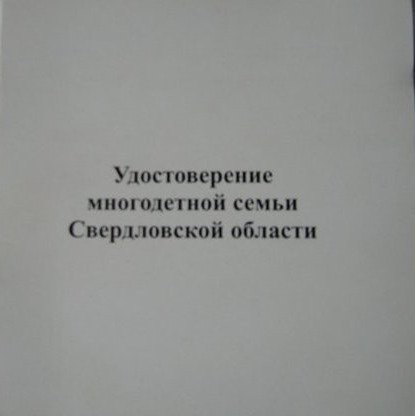
Accordingly, the second condition is the recognition of children as minors. A family that includes adults cannot apply for the status of a large family. More precisely, they simply will not be taken into account when collecting all the necessary papers.
It is possible to obtain the status of having many children even after some children reach adulthood. To do this, the child must receive higher education. Only full-time departments are taken into account. In some regions there is an additional condition - study only on a budget. In this situation, the status can be extended until the student is 23 years old.
Paperwork is possible for one of the parents or for both. In practice, it is usually both legal representatives who formalize the title being studied.
How to obtain the status of a large family? Every applicant for the title should be interested in this question. After all, when you change your place of residence, you have to register having many children again and again. This is done because, according to the laws of a particular region, you can lose the title you are studying.
Who is left out?
How to obtain the status of a large family? Collect documents and then submit them to the relevant authorities. Please note that some children will not be counted. They will not need to collect the relevant papers.
Today the following are not classified as having many children:
- children provided for by the state (in full);
- those who were placed under guardianship due to biological parents’ evasion of their responsibilities;
- minors in respect of whom their legal representatives have limited rights or are completely deprived of them.
These are the most common cases. Other conditions are established at the regional level. As already mentioned, to register large families, only minors must be taken into account. 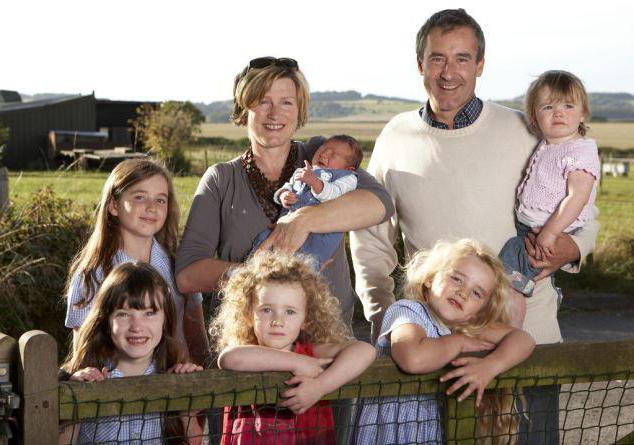
Registration authorities
Where to get status In fact, there is nothing difficult. Modern citizens are offered several bodies involved in obtaining the appropriate status.
Where exactly should I go? Today it is allowed:
- submit an application to the social protection;
- contact the MFC.
More and more often, the population uses the services of multifunctional centers. It is necessary to submit certain documents and a statement of the established form to this body. And then just wait for the result. If all regional requirements are met, then citizens will be issued a certificate of the established form.
About documents
With proper preparation, the process will not take much time. How to obtain the status of a large family? What documents will be required to bring your idea to life? A complete list is established at the regional level. But there is a generally accepted list of all necessary papers. 
To obtain and also obtain the appropriate status, you need:
- an application from one or both parents (issued and filled out at the MFC or social service);
- birth certificates and statements of all children;
- adoption documents (if any);
- certificate of marital status (marriage or divorce);
- certificates of children's education (if necessary);
- parents;
- children's passports (for persons over 14 years old).
As a rule, this is enough. In some cases, among the required documents, certificates are identified. They may require this paper. Additionally, to obtain a certificate, you must provide a 3x4 photo from applicants. 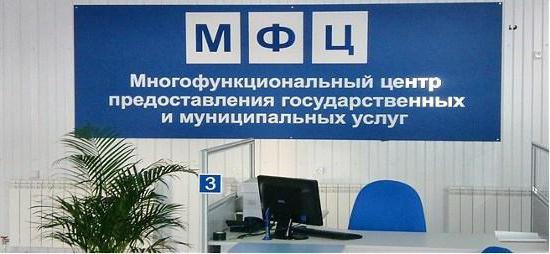
For Moscow and the region
How to obtain the status of a large family in Moscow? Citizens can use the State Services portal. It is with the help of this service that the population has the right to submit an application in the established form. But what exactly is required to obtain the status being studied in Moscow and the Moscow region?
The requirements are as follows:
- presence of children;
- registration in Moscow or the Moscow region;
- absence of adult children (they, as already mentioned, are not taken into account when issuing a certificate).
Nothing more is needed. How to obtain the status of a large family in the Moscow region or directly in the capital of Russia? Submit documents through the MFC or directly to social media. protection of a particular area of residence. Their list has already been named earlier. In Moscow and the region, no specific papers are required.
Review period
How long will it take to consider an application of the established form? As a rule, the period for reviewing submitted documents is 30 days. Sometimes the response from the administration of a particular city comes earlier. It all depends on the workload of the relevant authorities. 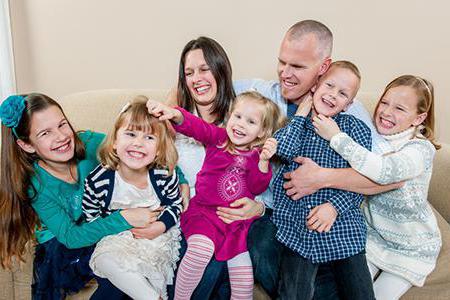
The process itself is not that simple. If you refuse, you can deliver certain papers and then wait for an answer again. The status is issued for exactly 1 year. After this, you will have to confirm your status again and again. But in some regions the need for constant confirmation does not exist. For example, in Moscow there has been no such need since 2010. In this region, the certificate is issued until the age of one of the children (the youngest of those available at the time of establishing the status). Only if any conditions change (divorce, birth of a new child) will it be necessary to engage in confirmation. It’s not entirely convenient, but such rules are established in Russia.
Results
That's it. In fact, everything is simpler than it seems. If you carefully study the rules in a particular region, then the issue of obtaining the status you are studying will not cause any trouble. Except that his confirmation brings some inconvenience.
How to obtain the status of a large family? It is enough to collect certain documents and submit them to the authorities social protection population. It is recommended to offer all papers both in original and with copies. they won't demand it. 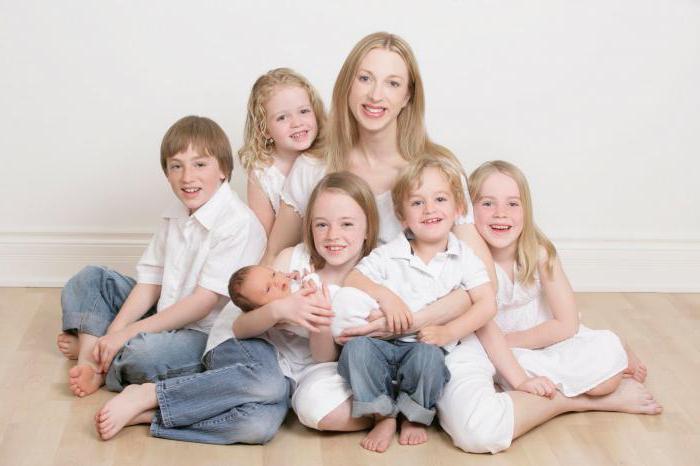
The main problem is that each city in the Russian Federation establishes its own rules for officially registering the status of a family with many children. And often, when moving to a particular locality, citizens lose their preferential status. More and more often there are conditions in which it is necessary to have as many children as possible. Today, few places provide the opportunity to claim the title of a large family with 3 minors.



